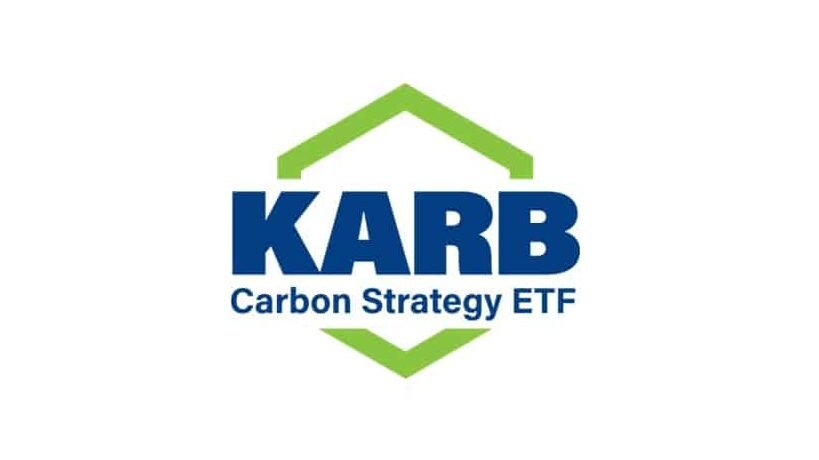Carbon Fund Advisors introduced the Carbon Strategy ETF with NYSE Ticker KARB to provide exposure to global compliance carbon markets.
The Carbon Strategy ETF “KARB”
The Carbon Strategy ETF is an actively managed exchange-traded fund that uses a reference index – the Carbon Streaming BITA Compliance Index.
It’s a rules-based index that tracks the performance of the compliance carbon markets via an allocation into a series of carbon allowance futures.
KARB ETF will hold futures contracts on carbon allowances in emissions trading systems (ETS) in North America and Europe. These particularly include:
- European Union Allowances (EUA)
- California Carbon Allowances (CCA)
- US Regional Greenhouse Gas Initiative (RGGI) CO2 Allowances
- United Kingdom Emissions Trading Scheme (“UK ETS”)
The Fund aims to maximize capital appreciation while minimizing the cost of rolling futures.
Apart from providing exposure to regulated carbon markets, KARB ETF may also bring potential appreciation in carbon prices as the world aims to achieve the Paris Agreement goals.
The ETF also seeks to give investors a vehicle to benefit from stricter regulations and reductions in the amount of allowances. This may lead to higher prices.
It may also act as a hedge against climate-related risks. And it can even give investors access to the emerging asset class of carbon.
Compliance Carbon Markets & KARB
Governments and jurisdictions that form the compliance carbon markets created the ETS to put a price on emissions. They’re also to incentivize carbon-intensive industries to cut down their emissions.
- ETS is also known as the cap-and-trade program.
As for Tim Collins, Carbon Fund Advisors’ founder and president:
“There is a growing global push to regulate and reduce greenhouse gas emissions in an effort to combat climate change… and ETS can be an effective tool for governments across the globe to achieve their climate goals.”
The compliance carbon markets have grown rapidly in value from $220 billion (€186 billion) in 2018 to $899 billion (€760) in 2021.
They’re established by regional, national or subnational jurisdictions to cap total emissions allowed for certain industries.
The cap, or permitted emissions, declines each year to achieve the climate goals of the jurisdiction.
- Carbon allowances, also called carbon credits, equal to the emissions cap can either be freely allocated and/or auctioned to emitting companies by the regulating body.
Firms with caps may buy or sell carbon allowances based on their need. For instance, a company with lower emissions can sell their allocated carbon allowances to others with higher emissions.
Tesla is a perfect example for this, earning billions of dollars in regulatory carbon credits sales.
Entities that don’t have enough allowances to offset their emissions at the end of the reporting period will face fines.
Trading carbon credits is limited to entities registered in an ETS only. And most investors do not have access to this carbon trading.
Some active futures markets may provide investors with exposure to compliance carbon markets.
Still, the challenges of getting access to derivative markets make direct investments in carbon allowance futures contracts difficult.
This is where the Carbon Strategy ETF offers a potential solution.
The KARB ETF opens the door to invest in a portfolio of carbon credit futures at a time when prices will increase further to meet the Paris Agreement targets.
Also, reduction in the supply of carbon credits each year as the cap declines may lead to higher prices. High carbon prices are crucial to prompt companies to invest in lower emission alternatives.
In fact, carbon prices need to reach $130/ton by 2030 and $250/ton by 2050 to meet net zero ambitions.
Carbon Streaming Corporation holds a 50% equity interest in Carbon Fund Advisors Inc.

